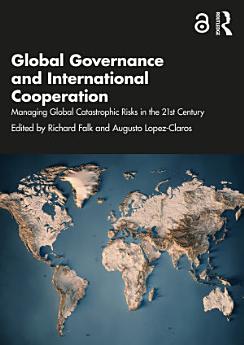Global Governance and International Cooperation: Managing Global Catastrophic Risks in the 21st Century
About this ebook
Twenty-eight contributors offer thoughtful proposals for reforming existing international institutions and creating new ones to build a more peaceful, prosperous and just world, covering themes such as the management of weapons of mass destruction, collective security arrangements, justice and equity in economics, human rights, migration and refugees, climate mitigation, and food security, all bearing on the health of both people and planet.
The vital project of this century is building institutions that will underpin global governance in coming decades, requiring imagination, persistence, empathy, and confidence that we will find a path to enhanced mechanisms of binding international law and the resources to make that happen. The volume is essential reading for scholars and researchers on international politics and public policy and indispensable for diplomats and government agencies.
About the author
Richard Falk is Princeton University’s Albert G. Milbank Professor Emeritus of International Law, Chair of Global Law in the Faculty of Law, Queen Mary University London, Co-director of its Centre of Climate Crime and Climate Justice. He is Research Associate at Orfalea Center of Global Studies at the University of California, Santa Barbara, and Fellow of the Tellus Institute, author of This Endangered Planet (1971) and a memoir, Public Intellectual: The Life of a Citizen Pilgrim (2021). He was nominated for the Nobel Peace Prize in 2023.
Augusto Lopez-Claros is an international economist and Executive Director of the Global Governance Forum, with 30 years of experience in international organisations. He was Director of World Bank’s Global Indicators Group, within the Bank’s Development Economics Vice-Presidency. In 2018–19, he was Senior Fellow at the Edmund Walsh School of Foreign Service (Georgetown University) and previously Chief Economist and Director of the Global Competitiveness Program of the World Economic Forum and Resident Representative for the International Monetary Fund in Russia in the early 1990s.






